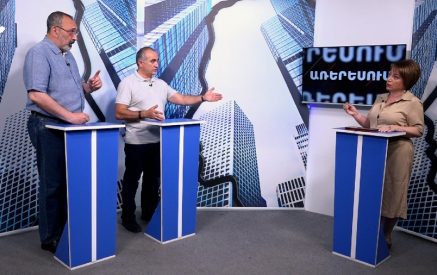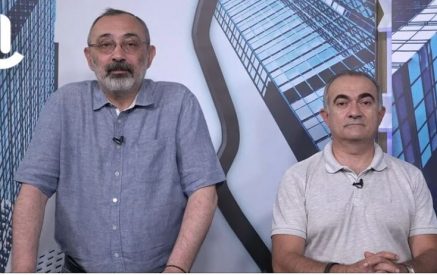NA parliamentarian Tevan Poghosyan, yesterday, at the NA extraordinary session, presented the draft of amendments to the NA Rules of Procedures, which, particularly, suggests limiting the time for NA-Government Q&A, as well as the duration of the answer to 2 minutes and 1 minute for the answers. The aim is to address more questions to the executive.
Two minutes is not less time, transcribed into a written text it makes a little less than one computer page. This is sufficient to express many concise thoughts. But I doubt that this draft will be passed because the offer appears to be outwardly “technical”, but if passed, it will cause a small “cultural revolution”, at least at the parliamentary level. Because, thereby, it will approve that people are addressing questions to learn something, and answer for conveying certain information. This approach comes into sharp contradiction with the traditions of the Armenians social thought.
The parliamentarians ask questions for showing them off, the ministers answer to “evade” and “obscure” the problem. But not only the MPs and the ministers are able to “ask a question and answer” in two minutes but many of our compatriots have been deprived of this important ability. I know so many politicians and expert, who are unable to speak less than 15 minutes when answering one question.
The roots of the problem are in our “traditional”, still in the 19th century-born world outlook and our educational system incurred thereof. For decades, the teachers of the Armenian language teach the children how to write “nice” essays, which means writing a long, crunchy and compound subordinate sentences, and most desirable that they contain howling words like “multi-suffering,” “survivor,” “take shelter” and so on. The ten-year school stereotype leaves its indelible mark on people’s mindset. The language is the mirror of the mindset, isn’t it? If a man cannot express his thoughts short and concise, hence, his mind is unable to focus on any object and is endlessly jumping from subject to subject. The schools do not teach how to think in an organized manner. On the contrary, they teach how to “moan”.
Read also
Here it appears that when an official or a commentator (in this case, it’s the same thing) should speak, let’s say, about school food problems, he begins from afar. “Armenians have passed a difficult and devious way. Still during Tigran the Great’s time…”
… Incidentally, this stereotype is one of the reason why the philologists usually do not become good journalists. Exceptions are not counted.
Aram ABRAHAMYAN






















































